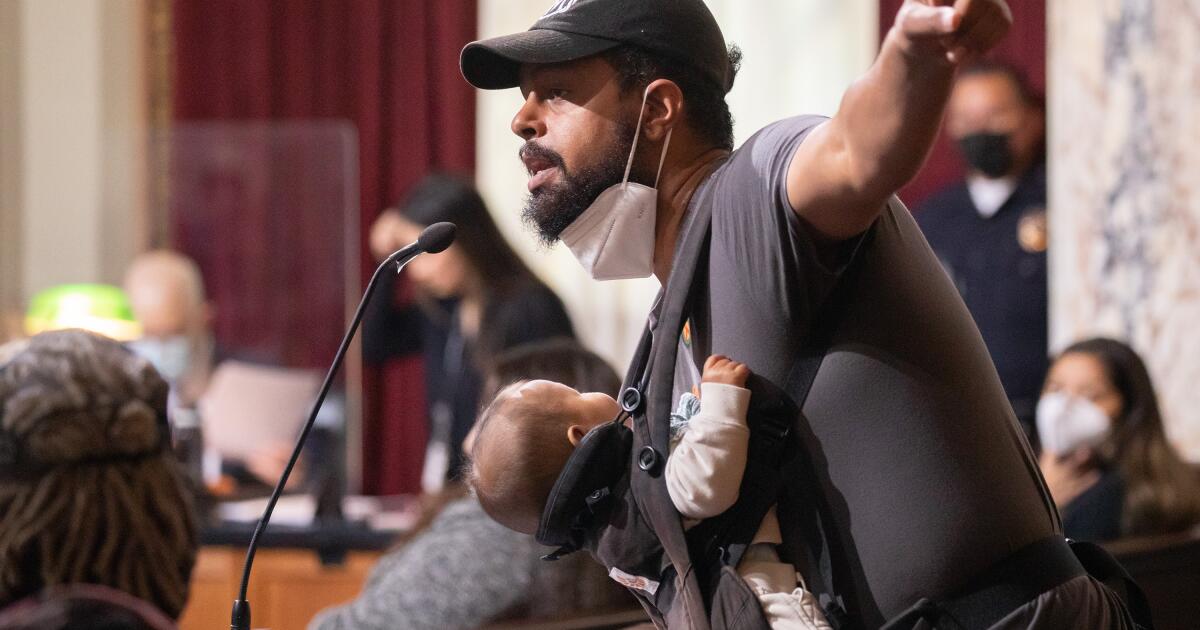Sweeping gun legislation approved by Maine lawmakers after mass shooting

AUGUSTA, Maine– The Maine Legislature approved sweeping gun safety legislation, including background checks for private gun sales, waiting periods for gun purchases and criminalization of gun sales. shooting at prohibited people, before adjourning Thursday morning, nearly six months after the deadliest shooting in state history.
Democratic Gov. Janet Mills and the Democratic-led Legislature have pushed for a number of proposals on guns and mental health after the shootings that killed 18 people and injured 13 others , despite the strong hunting tradition and gun ownership in the state.
“Maine has made significant progress in preventing gun violence and protecting lives in Maine,” said Nacole Palmer, executive director of the Maine Gun Safety Coalition, who praised lawmakers for listening to their constituents.
The governor’s bill, approved Thursday morning, would strengthen the state’s yellow flag law, strengthen background checks for private gun sales and make it a crime to recklessly sell a firearm to someone who is prohibited from possessing weapons. The bill also funds violence prevention initiatives and opens a mental health crisis shelter in Lewiston.
The Maine Senate also narrowly gave final approval Wednesday to a 72-hour waiting period for gun purchases and a ban on bump stocks that can turn a gun into a machine gun.
However, no action has been taken on a proposal to institute a warning law. The bill sponsored by House Speaker Rachel Talbot Ross would have allowed family members to ask a judge to remove guns from a person experiencing a psychiatric crisis. The state’s current yellow flag law differs in that it puts police at the front of the process, which critics say is too complicated.
Lawmakers persevered through the night and into the morning as they ran into the adjournment date, which was Wednesday. But it didn’t happen without some eleventh-hour drama. Lawmakers had to approve a controversial supplemental budget before taking their final vote and did not conclude the session until after dawn.
The Oct. 25 shooting by an Army reservist in Lewiston, Maine’s second-largest city, served as a tragic backdrop to the legislative session.
Police were notified by family members that the shooter was becoming delusional and had access to weapons. He was hospitalized for two weeks while training with his unit last summer. And his best friend, a fellow reservist, warned that the man was going to “attack him and carry out a mass shooting.” The shooter committed suicide after the attack.
Survivors of the shooting had mixed feelings. Some wanted legislative action. Others, like Ben Dyer, who was shot five times, were skeptical of the proposed laws.
“A sick person did a sick thing that day. And the Legislature and politicians are trying to capitalize on that to push their programs through,” said Dyer, who argues that law-abiding gun owners are the ones who would suffer from the proposals while criminals ignore them. The state already had a yellow flag law, but law enforcement officials did not use it to prevent the tragedy, he added.
His sentiments echoed the views of Republicans who accused Democrats of using tragedy to play on people’s emotions to pass controversial bills.
“My big concern here is that we are moving forward with gun legislation that has always been on the agenda. Now we’re using the Lewiston tragedy to force our way through when there’s nothing new here,” said Republican Sen. Lisa Keim. “It’s the same old ideas that have been thrown out year after year.”
But Democrats said their constituents implored them to do something to prevent future attacks. They said ignoring their calls would have been an abdication of responsibility.
“For the sake of the communities, individuals and families who are suffering immeasurable pain today, for the sake of our state, doing nothing is not an option,” said the governor, a former prosecutor and prosecutor. general, at the end of January when she presented her proposals. in his State of the State address. Those present responded with a standing ovation.
ABC News





